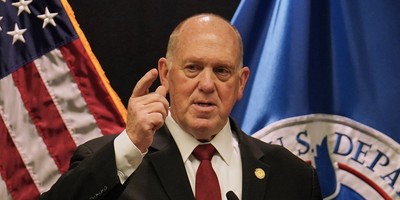Vocal patient advocates are increasingly distorting public health priorities, research agendas, and even public policy. Media and policy makers, as sympathetic to the voices of patients and family members as the rest of us, are giving the advocates influence that outweighs their credentials.
This phenomenon is similar to the attention celebrities get when they use their stardom to advocate for their favorite causes. When Julia Roberts testified to Congress in 2002 seeking funding for the rare, albeit devastating Rett Syndrome, I wrote that public health policymakers should be less concerned with a Hollywood starlet’s emotional pleas and focus on “getting the biggest bang for the public health buck.”
Patient-advocates, be they patients, or family members, have unique insight into the toll of their particular disease and treatment options, but tend to have no special scientific training that would justify the megaphone the media often hands them. (Certainly, there are exceptions.)
Recent reporting about the status of the cancer drug Avastin (bevacizumab) is a classic example. This frightening phenomenon was documented in a Forbes’ piece by Larry Husten of CardioBrief earlier this month. Husten takes note of the emotion-driven coverage of the FDA’s hearings on the drug’s efficacy as the agency considered removing its breast cancer indication.
In the Avastin episode, the unbalanced reporting focused on the moving pleas of patients angry with FDA officials for presenting scientific evidence questioning the benefits of Avastin when weighed against its risks and forecasting death if the drug “they believe in” is no longer approved for use to treat breast cancer. Regardless of your view of Avastin’s effectiveness, this kind of hyped-up rhetoric without scientific basis should carry no weight in a scientific discussion. It would not be entertained if it came from anyone without the ability to tug at heart-strings.
Recommended
As Husten properly puts it, “If it were scientists making these claims, a reporter--or at least a good one--might ask them some hard questions: what is the evidence for your claim? How do you know the drug saved your life?” Yet Husten's piece has become a lighting-rod for the issue of patient driven efforts to sway science. In fact, he's received a barrage of criticism from the patient activist community, who, ironically, have reinforced his point by relying on emotion rather than data to rebut him.
They've argued that Husten and others are trying to "muzzle" them. But that is not what he, or I, am arguing. Patient advocates are free to talk all they want. They should be encouraged to speak out because their voice plays an important role in informing the public of their perspective. But that perspective should not be confused with, nor crowd out, the more important scientific perspective.
My concern is not so much that scientists are going to be unduly influenced by patient activists: they usually know better. The real problem is the impact on both the public and on policymakers, those trusted with making the decisions that should be based more on detached science than emotionally appealing arguments. Because decisions that stray from science tend to waste taxpayer dollars and restrict consumer choice, good-government policy dictates we pay less attention to this type of patient advocacy.























Join the conversation as a VIP Member